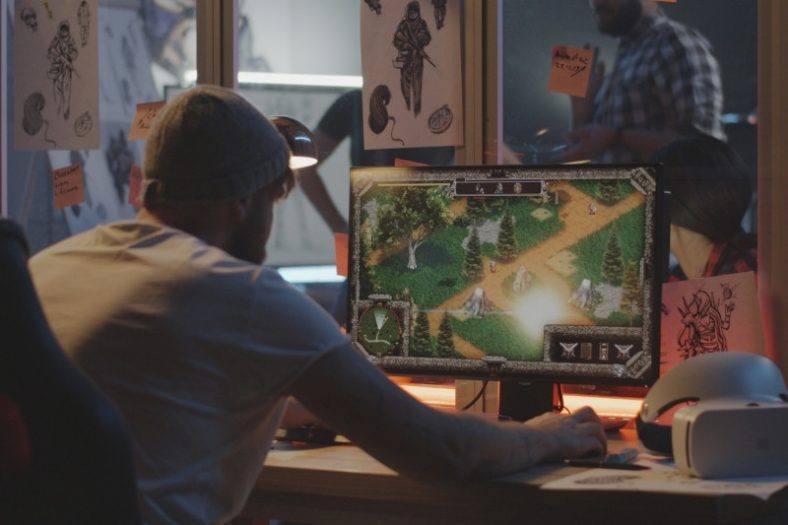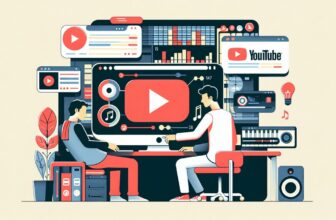Is Video Game Music Copyrighted?

Video game music is copyrighted and cannot be used in live streaming or videos unless you’ve secured the necessary rights to do so. Despite this, streaming is not impossible; dedicated streaming policies, fair use, and streamer modes are just a few solutions for getting around the issue.
For a song to exist, someone had to put in the work. This applies to all kinds of music, and video game music is no exception. What makes video game music different, though, is the fact that live streaming has become a central part of gaming culture. Sadly, thousands of video-game videos have been removed from platforms such as Twitch and YouTube due to copyright infringement (learn more about how copyright laws work here).
Streaming platforms and video-game developers alike have been making efforts to tackle the issue, as it’s in their best interest that gamers continue to publish content about video games. Twitch, for instance, made a deal with the National Music Publishers’ Association to limit the scope of copyright infringement bans.
However, there’s still no definite solution to the problem. If you’re creating content based on video games and publishing it online, there are a few workarounds worth exploring, though.
Contents
Why can’t you use copyrighted music in your videos?
You can’t use copyrighted music in your videos because all copyrighted music is protected by copyright laws. This means that copyrighted artists are entitled to a fee anytime their songs are performed publicly. If you use a song without the artist’s permission, you’ll get a DMCA takedown notice.
What is a DMCA takedown notice?
DMCA stands for Digital Millennium Copyright Act and it’s a copyright law that criminalizes the unauthorized digital reproduction of copyrighted works. If one of your YouTube videos gets hits with a DMCA takedown notice, it will be removed. In extreme cases, you can receive a huge fine.
According to U.S. law, you need to license a work of art anytime you perform it publicly. Music used in Twitch videos qualifies as publicly-performed music, as does music that plays in the background of stores, music used in DJ sets, music used in a remix, and even music covered during a live performance.
What can you do to create legal content about video games?
There are four ways of making content about video games and not getting a DMCA takedown notice: getting authorization from the copyright owners, complying with the streaming policies of specific game developers, through fair use, and simply turning off the music.
1. Getting authorization from the copyright owners
To license video game music, you first need to get in contact with a performance rights organization and pay a predetermined fee. You can also get direct authorization to use copyrighted music by reaching out to the creators, preferably via email. Needless to say, this method is either expensive or extremely time-consuming.
2. Complying with the streaming policies of specific game developers
Because game developers want you to create content about their video games (it’s great for promotion), they have come up with specific streaming policies that may or may not allow the use of copyrighted music in Twitch and YouTube videos. Sadly, most will still not allow you to do so.
Either way, it’s advisable to check the streaming policy of a given video game before publishing a video about it – who knows, you may get lucky! Keep in mind, though, that the attitude of game developers towards this issue doesn’t tend to be very liberal (just ask Nintendo).
3. Using music legally through fair use
Fair use is a doctrine in U.S. law that states that copyrighted music can be publicly performed if it’s used in a “transformative” way. If you’re a freelance content creator making content about video games, fair use may be your best shot at using video-game music in your videos and getting away with it.
According to the self-described YouTube lawyer Ian Corzine, streamers can use video-game music in a transformative way by making a review of a song, making a technical breakdown of its components, and even making fun of it. In other words, they can transform a work of art by adding something to it that can be considered valuable.
Unfortunately, fair use isn’t the golden ticket out of a DMCA takedown notice that it appears to be. Corzine mentioned that many channels still get wrongfully shut down by DMCA despite complying with fair use guidelines, and it’s still hard to define what constitutes a “transformative” use in legal terms.
4. Turning off the music
Unfortunately, the safest option to avoid a DMCA takedown notice is to turn off the music. You can do so in most video games by going to the preferences in the main menu. For older video games, you can simply mute the sound on the recording.
Because music is part of the soul of a video game, watching muted live streams may not be particularly exciting. Game developers think so too, and that’s why they’ve been working on dedicated “streamer modes,” in which all copyrighted music (but not non-copyrighted sounds) are excluded from the game.
Some streamer modes work flawlessly, others don’t. A particular dancing scene from the video game “Life is Strange: True Colors,” for instance, is so awkward in streamer mode that it inspired a series of online memes.
Are the sound effects in video games copyrighted?
Sound effects in video games were carefully crafted by a sound designer, and they’re copyrighted too. However, there’s a big difference between video-game sound effects and actual video-game songs, as sound effects will seldom give way to DMCA takedown notices.
The reason why using video-game sound effects will not get into trouble 99 out of 100 times is because, unlike songs, sound effects are much harder to track online.
Songs tend to play uninterruptedly from start to end during a scene of the video game, whereas sound effects are much less predictable. Sound effects play whenever gamers perform certain actions, meaning that, in a way, they’re being actively controlled by the players.
Summary
Streaming culture isn’t exactly a novelty, but it’s fairly new in the eyes of the law. At the moment, there’s still no definite answer to the problem surrounding copyrighted music in video games. Everybody (including game developers) wants you to create content about video games, but nobody wants to put the rights of artists at risk.
Right now, music in video games exists in this gray area. The best way around the problem is to trust that the music in your videos falls under the fair use guidelines stipulated by U.S. law. The safest way around it, though, is to hit that streamer mode and stop worrying about DMCA notice takedowns for good.





